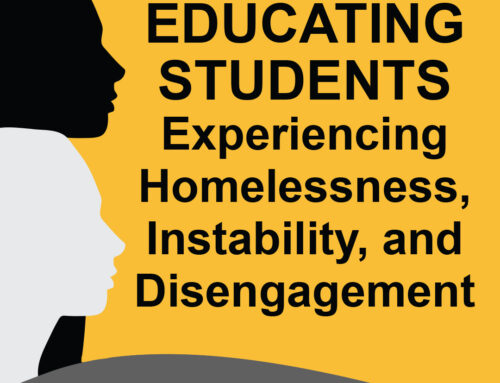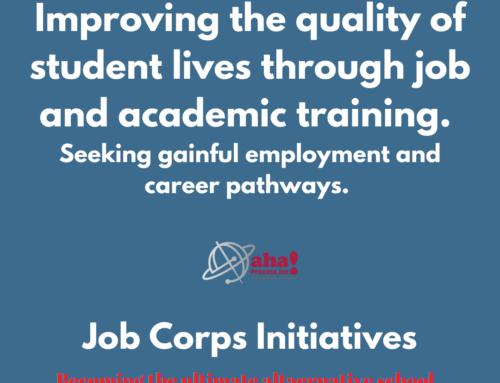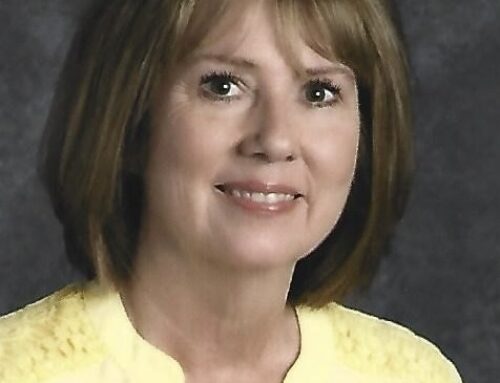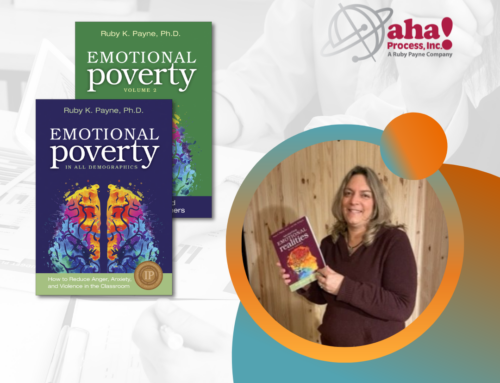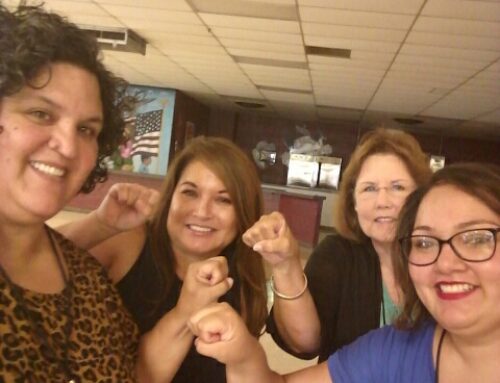With the permission of William D Parker, we’ve re-printed his transcript of an interview he conducted with Ruby recently. The introduction is included for context. William’s blog can be found here.
Ruby Payne is the best-selling author of A Framework for Understanding Poverty. Her book and other resources have significantly affected the way teachers reach at-risk students. Her work has helped me personally in my interaction with all students by giving me a clearer perspective on the key resources students need to be successful in school or life. She is the founder of aha! Process, an organization committed to provide leadership and resources to educators who want to help students from any background find success. I am simply thrilled she has agreed to share some of her insights on school leadership with us.
My goal in posting interviews with successful leaders like Ruby is to inspire us to reflect on how our own choices, goals, and actions can affect our lives, our leadership, and our teams. I must also give credit to John Lee Dumas of Entrepreneur on Fire whose great podcast interview questions I have modified for the Q & A’s I have with my guests.
WDP: Thank you so much for sharing. Can you start by sharing a favorite success or motivational quote with us?
Ruby: “To laugh often and love much; to win the respect of intelligent persons and the affection of children; to earn the approbation of honest citizens and endure the betrayal of false friends; to appreciate beauty; to find the best in others; to give of one’s self; to leave the world a bit better, whether by a healthy child, a garden patch or a redeemed social condition; to have played and laughed with enthusiasm and sung with exultation; to know even one life has breathed easier because you have lived—this is to have succeeded.” ―Bessie Anderson Stanley
WDP: How have you used the idea contained in your favorite quote to affect your own leadership?
Ruby: It has simply been my whole life. True leadership is often a very lonely business—emotionally and cognitively. No one thinks quite the way you do. Remembering the wonderful “big picture” perspective of this type of quotation has always carried me through.
WDP: You have had a lot of success, but great leaders also experience failure. Can you take us back to a failure or obstacle you overcame and how you did it?
Ruby: There have been so many … it’s hard to choose! Two obstacles in particular that come to mind were the decision to get divorced and the loss of purpose in my life after that. Another obstacle is charting the waters of recession with my company, aha! Process, Inc. When there are losses or obstacles, there is a tendency to view them as “the end” or a “failure.”
I came to understand that there is an ebb and flow to life and that loss is a key part of life. It is part of the ebb and flow of loss and gain. I believe that when one door closes, another one opens. And sometimes we bang on the door that is closed, rather than seeking one that is open. I also learned that some grieving simply takes time. There is really no quick fix. And some losses can never be regained. But always, something wonderful comes along to bring joy, peace, and happiness in a new way. Life is not static.
WDP: Thanks for sharing the wisdom you’ve learned from hard times. What is an example of something you have done that required risk but created great results?
Ruby: When I married my former husband, Frank, I was rejected by many in the Mennonite church (and for a while by most of my family) that I grew up in because he was in the military and most Mennonites are pacifists. But because of that decision, I learned about poverty from him and his neighborhood, which allowed me to have the information and insights to write the book A Framework for Understanding Poverty, (which has now sold more than 1½ million copies.)
WDP: What is an example of an “aha!” moment where you realized a key truth that you turned into a success.
Ruby: One of the key turning points for me was when I realized that I had to be my own mentor. I remember sitting at my desk and realizing that, if I were to move forward, I needed to become my own mentor. Another “aha!” moment for me was when I realized the personal cost of following your own path. As long as you stay with the “group,” it is rare that you can realize your full potential. But when you leave the “group,” there are many times on the “road of life” where it is you and your God. I have learned to simply trust the divine and to understand that “going out on your own” sometimes means there are few emotional and cognitive supports.
WDP: As a leader, have you had an “I’ve made it” moment?
Ruby: Actually, no I have not. I had a boss who told me, “You are only as good as your last presentation.” And J. W. Marriott says that one should never believe the hype. I find that to be true. There have been many highlights in my career; I just never have felt like “I’ve made it.” There always seems to be a list of things waiting to be done.
WDP: What was holding you back from seeing the high levels of success you have been experiencing for years now?
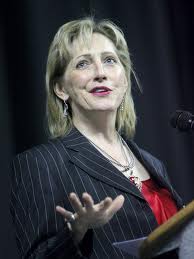 Ruby: I guess that I do not measure success the way others might or the way that Western thought measures success. I have absolutely gotten to do the work that I love—and that is a fabulous gift in my life because I love teaching and learning.
Ruby: I guess that I do not measure success the way others might or the way that Western thought measures success. I have absolutely gotten to do the work that I love—and that is a fabulous gift in my life because I love teaching and learning.
For me, it is wonderful to be acknowledged as having made a contribution, but I am fully cognizant that 20 years after I am gone, very few will remember me. So the reality is this. In the final analysis, success is about having been able to make contributions that bring joy, meaning, and personal fulfillment—to oneself and, perhaps, to others.
The opportunity to explore ideas, to work with people to improve the lives of children and adults, and to bring understanding and a level of peace to individuals who are struggling … that is success. I think every human being who does that is at a high level of success—whether it is recognized or not. And I am grateful for all the individuals who have stood with me and behind me to help make those kinds of things happen.
WDP: What is the best leadership advice you have ever received?
Ruby: I had a superintendent tell me this: “Ruby, you will be a great administrator. You don’t need people to like you.” I said to him, “But I want people to like me.” He said, “Everyone wants to be liked. But you don’t need it. The administrators who get into trouble are ones who need to be liked. You need to be respected. Then you will always be OK.”
At the end of the day, at the end of life …. all you have is integrity, self-respect, and leaving the world a better place.
WDP: What is something that is working for you or your team right now?
Ruby: The acceptance of my imperfections as a leader. Right now, there is a larger concept that in good organizations everyone is happy and the world is copacetic. Not necessarily true. If we’re going to fulfill our mission, then it will be important to accept reality and move on. Not everyone can go on the journey with you.
WDP: Do you have a resource that you just love that you would recommend to other leaders?
Ruby: I would recommend that each leader have a deep spiritual grounding—not necessarily religious but spiritual. In my opinion, it is vital to maintain purpose, integrity, and balance as a person and as a leader. The second resource is to write down—every day—three good things that happened that day and be thankful for that. Daily gratitude changes the focus of the mind.
WDP: If you could recommend one book for other school leaders, what would it be?
Ruby: Yes, I love to read. My favorite book on leadership right now is by Edwin Friedman called The Failure of Nerve: Leadership in the Age of Quick Fix. He is so accurate about the reality of leadership now.
WDP: If you could speak to the 20-year-old version of yourself, what advice would you give him or her?
Ruby: I would tell myself to relax and enjoy the journey of life and to keep the focus on purpose and moving forward. I would worry a lot less about making sure everyone is OK. I would tell her that no one will think exactly as she does and that there is no need to keep defending yourself. I would say that people come into your life for a period of time to assist you on your path, and then they go on to another path. I would tell her that research comes in waves and fads, is always incomplete and often biased, and rarely changes basic human characteristics. I would tell her that every day is a gift—and that she has a choice between seeing each day as a grievance or a miracle.
WDP: You have given us such incredible insights. Any final thoughts you’d like to share?
Ruby: Without leadership, no group of people can progress very far. Leadership is messy and often misunderstood, but it is absolutely essential for the well-being of any community, institution, society, or country.
WDP: Thanks Ruby for the great advice and information for leaders!
We’ll leave you with the great question William closed with –
As you learn to bring value to the lives of others, what are some ways you have learned to reconcile the desire to lead with the reality that you will never please everyone? As Ruby said, 20 years after we’re gone, most people will not remember us. What legacy would you like to leave behind even if no one remembers you made the contribution?

